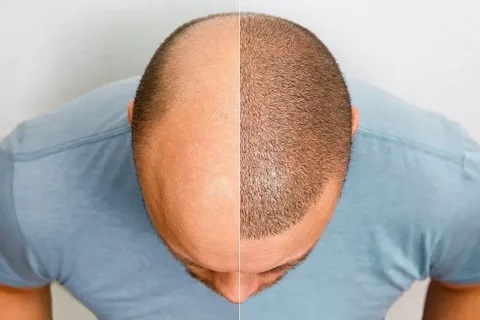Hair transplantation(زراعة الشعر) has become a widely accepted and effective solution for various types of hair loss, offering individuals in Dubai and across the globe a chance to restore their natural hairline and density. However, when it comes to patients with alopecia, the considerations and success rates can vary significantly depending on the specific type and severity of the condition. This blog delves into the possibilities and limitations of hair transplants for individuals with alopecia seeking treatment in Dubai’s advanced medical landscape.
Understanding Alopecia: A Spectrum of Hair Loss Conditions
Alopecia is a broad term encompassing various conditions characterized by hair loss. It’s crucial to understand the specific type of alopecia a patient has, as this will largely determine the suitability and potential success of a hair transplant. The main types of alopecia include:
- Androgenetic Alopecia (Male and Female Pattern Baldness): This is the most common type of hair loss, caused by genetic predisposition and hormonal factors. Hair transplantation is generally very successful for individuals with stable androgenetic alopecia, as the donor hair from the back and sides of the scalp is typically resistant to the effects of DHT (dihydrotestosterone).
- Alopecia Areata: This autoimmune disorder causes patchy hair loss on the scalp and other parts of the body. The success of hair transplantation for alopecia areata is less predictable, as the transplanted hair follicles may also be susceptible to the same autoimmune attack.
- Alopecia Totalis and Universalis: These are more severe forms of alopecia areata, resulting in complete hair loss on the scalp and the entire body, respectively. Hair transplantation is generally not a viable option for these conditions due to the lack of stable donor hair.
- Scarring Alopecia (Cicatricial Alopecia): This group of disorders involves inflammation that destroys hair follicles and replaces them with scar tissue, leading to permanent hair loss. Hair transplantation is often challenging in cases of active scarring alopecia, as the scarred scalp may not support new hair growth. However, in some cases of stable, inactive scarring alopecia, transplantation might be considered.
- Traction Alopecia: This type of hair loss is caused by prolonged tension on the hair follicles, often due to tight hairstyles. Hair transplantation can be an effective solution for traction alopecia, provided the underlying cause is addressed and there is sufficient healthy donor hair.
Hair Transplantation in Dubai: Considerations for Alopecia Patients
When a patient with alopecia seeks a hair transplant in Dubai, a thorough evaluation by an experienced dermatologist and hair transplant surgeon is essential. This evaluation will involve:
- Accurate Diagnosis: Determining the precise type of alopecia is the first and most critical step. This may involve a detailed medical history, physical examination, blood tests, and scalp biopsy.
- Assessing the Stability of Hair Loss: For conditions like alopecia areata, it’s crucial to ascertain whether the hair loss is stable and not actively progressing. Transplantation is generally not recommended during active phases of the disease. A period of stability, often for 1-2 years, is usually required.
- Evaluating Donor Hair Availability and Quality: The success of a hair transplant relies on the availability of healthy donor hair that is resistant to the specific type of hair loss. In cases of extensive alopecia or certain scarring alopecias, the donor hair supply may be limited or unsuitable.
- Managing Expectations: It’s vital for patients with alopecia to have realistic expectations about the potential outcomes of a hair transplant. The degree of regrowth and overall cosmetic improvement can vary depending on the type and severity of their condition.
Techniques That May Work for Specific Alopecia Types in Dubai
While hair transplantation may not be suitable for all types of alopecia, certain techniques and approaches can be considered for specific conditions in Dubai:
- Androgenetic Alopecia: FUE (Follicular Unit Extraction) and DHI (Direct Hair Implantation) are highly successful techniques for male and female pattern baldness in Dubai, offering natural-looking and permanent results.
- Stable Alopecia Areata (in limited cases): In cases where alopecia areata has been stable for an extended period and the balding areas are localized, FUE may be cautiously considered. However, patients must be aware of the risk of the transplanted hair also being affected by the autoimmune condition. Combining transplantation with ongoing medical management may be necessary.
- Inactive Scarring Alopecia: If scarring alopecia is no longer active and there are areas of healthy donor hair, FUE might be an option to improve the appearance of localized bald patches. However, the survival rate of transplanted grafts in scarred tissue may be lower.
- Traction Alopecia: FUE is often an effective technique for restoring hair loss caused by traction alopecia, particularly along the hairline. Addressing the underlying hairstyling practices is crucial for long-term success.
The Importance of a Multidisciplinary Approach in Dubai
Treating alopecia, especially when considering hair transplantation, often requires a multidisciplinary approach involving dermatologists, hair transplant surgeons, and sometimes other specialists. Clinics in Dubai that specialize in hair restoration for alopecia patients typically offer comprehensive evaluations and tailored treatment plans. This may include medical therapies to stabilize the condition, surgical transplantation when appropriate, and ongoing support and management.
Conclusion: Hope and Realistic Expectations in Dubai
While hair transplantation in Dubai offers a promising solution for many types of hair loss, its application for patients with alopecia requires careful consideration and a thorough understanding of the specific condition. For androgenetic alopecia and traction alopecia, transplants can be highly successful. However, for autoimmune conditions like alopecia areata and scarring alopecias, the outcomes are less predictable and require a cautious and individualized approach. Consulting with experienced specialists in Dubai who have expertise in treating alopecia is crucial for determining the most appropriate and effective treatment plan, managing expectations, and maximizing the chances of successful hair restoration.









